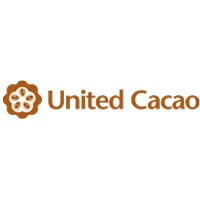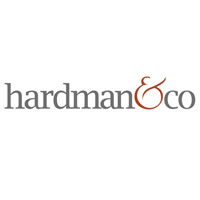United Cacao Ltd SEZC (LON:CHOC) Chief Executive Officer Dennis Melka caught up with DirectorsTalk for an exclusive interview to discuss their statement released yesterday following a recent press comment
Q1: First, has United Cacao broken any AIM Rules?
A1: Giles, absolutely not and it’s really incredible that there’s groups out there that has PO Boxes that are issuing press releases, defaming companies like ourselves which are doing hard work, creating jobs, working with the community, developing agriculture in rural areas so unequivocally we have not broken any rules. We’ve issued out a press statement at the request of the Exchange and we stand ready to answer any and all questions from stakeholders or regulators so again, unequivocally we have not broken any rules at all. I think it’s slightly incredible that in this day and age that companies which are doing the hard work, that are creating jobs, that are building farms that will be there for quite some period of time and providing employment, get attacked like this and I think even the Wall Street Journal commented on it, there was an article in March, a couple of months back, that these sort of progressive bullies that have an agenda. I think it’s important that we keep our head down, we do a good job, we do a lot of social good and it’s important that our shareholders and stakeholders know that.
Q2: What type of land are you developing the estate on?
A2: This land is perpetual, freehold land that is constitutionally protected in the Peruvian constitution and it’s in very strict zoning areas so this is very different, just to give you some background, very different in what happens in Asia or what happens in Africa, so this is where it’s very important that we set the story straight. This is freehold land, freehold land is titled, it’s perpetual, it is very different from plantation land in Asia or Africa which will be a concession for a period of time, 20-30 years or 50 years, again this is perpetual freehold land that is zones for agriculture so I think whenever you hear these sort of stories about a native claim or customary rights land that is not a situation in Peru where concessions are overlaid on top of existing land rights. Freehold land is available for Peruvian citizens and for indigenous communities and they have with their own titles and this is what really makes Peru a very unique place, it’s the clarity of the land registry and the zoning that goes around it.
Q3: Is there any remote, small possibility that this land can be determined locally to be ‘primary rainforest’? Is there any chance at all?
A3: Absolutely not and let me give you a very simple reason, it is illegal in Peru for the government to allocate land title to anybody if that land is primary rainforest, it’s simply not possible, title and primary rainforest are mutually exclusive in the Peruvian legal definition. So, absolutely not, this is titled agricultural land and in no way has been in the past through the titling process to be determined as primary rainforest so simply not possible, no chance at all.
Q4: How was the land originally titled that United Cacao acquired?
A4: Sure, I’ll walk you through that. If you look at the land we own, we purchased it from Peruvian citizens so this land was owned free and clear by local people who had acquired it and secured the titling back in the early 90’s. When you secure a title in Peru it’s very important that everyone knows the steps involved, first and foremost there has to be what’s called an ‘ocular inspection’ which creates an ocular inspection report, every single one of our titles has this ocular inspection report by the authorities, from the Department of Agriculture with the people that we’re working the land. Every single one we’ve posted on our website, you can view a sample and download it, show that there was agricultural activities certified by the authorities taking place at that time, we didn’t generate this document, these documents are in the public registry and are available for anyone to secure. The next thing after this ocular inspection report is that there’s a technical opinion and a directors resolution issued by the Department of Agriculture, that report also dated 19th April 1997 is available on our website for download and again very clearly shows that the government has zoned this as agriculture because of the existing activities underway and allocated those titles out to the people. We subsequently, back in 2012 onwards, acquired those titles from the vendors under a notary process which is the standard land transfer process in Peru so again there’s an incredible wealth of documents that back up this titling and show the agricultural activities underway.
Q5: Can you explain to me with this ‘PAMA’, what does it mean and when will it be approved?
A5: The ‘PAMA’ is the environmental certification tool relevant for our project so any project in Peru, whether it’s a mine or a shopping centre, needs some sort of environmental certification tool. In our particular case, United Cacao was told to do a PAMA, we did not request it, and a PAMA is important because it means that there’s existing agricultural activities underway and so we were told to do the PAMA, we submitted the terms of reference which were approved by the government, we submitted the community participation plan with the community in the area, that was approved by the government and so we’re wrapping up the final elements of this PAMA and we do expect that it’ll be finally approved and certified towards the end of this year. Again, a lot of this timetable is out of our hands but we do think that it will be approved towards the end of the year which would definitively and finally environmentally certify the project and I think it’s important to note that PAMA is something which is equivalent to an EIA, it is the final environmental certification tool.
Q6: What are your views on the Peruvian election runoff?
A6: Sure. What you’ve seen is the wide cast of candidates has been narrowed to two, both will make wonderful presidents for the country, Keiko Fujimori or Pedro Pablo Kuczynski (PPK), both are very pro-business, both have pledged to eliminate red tape in Peru to drive investment and to really create jobs. So I think that’s something which is great for the Peruvian economy and great for companies like us which are there on the ground, doing the hard work and creating jobs for the people of Peru.
Q7: How’s the PAPEC programme going?
A7: It’s going very well, I really encourage everyone to go to our website www.unitedcacao.com and visit the section where we have all the interviews and videos with the PAPEC participants so I think it’s easy for groups out in Western Europe to issue out press releases, I think it’s much harder to really work with the people on the ground and improve lives and make the world really a better place in Peru. So if you go to our website, Community Relations, PAPEC – Meet the Farmers, there you’ve got all the interviews from the actual people who live on the ground in Peru and trying to make their lives and the lives of their children better so we’re there every day helping them, we’ve got over 200 hectares planted, we’re growing that number this year, we’ll give a full update in our May release of our 2015 accounts. So we’re excited about the programme, listen to the farmers directly, please visit our website.
Q8: Now the cacao market this year, what’s the latest there?
A8: It’s very interesting, you’re seeing a big contraction in all the markets, there was a press release that came out of Cote D’Ivoire a couple of weeks back, they announced, surprising the market, production would be down this year, Ghana completely shocked the market, they sort of went from ‘we’re going to do 900,000 tonnes this year’ to ‘we’re going to do less than last year’ which was about 730,000 tonnes, who knows maybe it even falls more, don’t forget last year they oversold 200,000 tonnes but again they’re not able to deliver this year. Indonesia again is falling, Brazil falling so I think what you’re seeing is a contraction in all major supply markets and for this reason you see cacao price run up to about 3,200, I would be surprised if we see new highs this year just given the tightness in the market and continued demand globally.
Q9: Now how’s the plantation?
A9: It’s beautiful, we’ve got some photos on our website, we’ve got a video on the landing page, it’s really a beautiful piece of work that’s developing and growing and remember those trees that you see they’re going to be there for the next 40/50 years producing. So United Cacao are doing all the hard work now, we’re planting out the estate, we’re getting the environmental certifications, we’re creating an asset that in our opinion will be very valuable for the following decades and those trees grow absolutely perfectly in the growing environment. So I think it’s a real validation of the project that we started a few years back so we’re quite excited about what we see on the ground and it really is beautiful, please visit the website, click on the videos on the right side, you can see some of the staff working on the grafting, you can see the trees growing, it’s a majestic estate.


